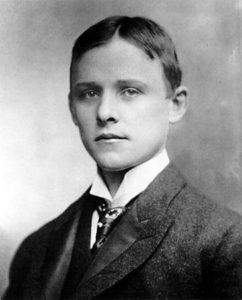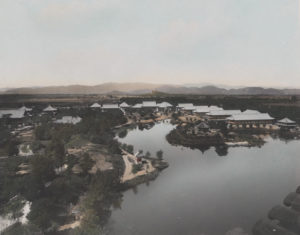History of The Harvard-Yenching Institute

Charles M Hall
The Harvard-Yenching Institute (HYI) was founded in 1928 with funding provided solely from the estate of Charles M. Hall, the inventor of a process for refining aluminum and the founder of the Aluminum Company of America (ALCOA). Although the Institute has close ties with Harvard University, it is a legally and fiscally independent public charitable trust. Mr. Hall’s charge to the trustees of his estate was to promote higher education in Asia and to that end the trustees of his estate partnered with Harvard University in order to fulfill the Harvard-Yenching Institute’s mission as stated in its Articles of Incorporation, “to conduct and provide research, instruction and publication in the culture of China and/or elsewhere in Continental Asia and Japan and/or Turkey and the Balkan States in Europe, by founding, developing, supporting, maintaining and/or conducting one or more educational institutions and/or by supporting in whole or in part, co-operating with or joining or affiliating with other institutions now in existence or hereafter formed…”

Yenching University campus
In the 1930s, the Institute supported the development of what became the Department of East Asian Languages and Civilizations at Harvard and founded the Harvard-Yenching Library as well as the Harvard Journal of Asiatic Studies (HJAS). During the 1930s and 40s, the Institute provided direct support to Yenching University, because of its focus on the liberal arts, along with five other colleges in China, Fukien, Lingnan, Nanjing, Shantung Christian and West China Union Universities, and Allahabad Agricultural Institute in India.
Since the 1950s, the Institute’s core activity has been to offer fellowships for overseas study and research to doctoral scholars and younger faculty members at leading East and Southeast Asian universities in all fields of the humanities and social sciences. Although the Institute has a special commitment to promoting the study of Asian culture, its support is not limited to that field. To date over 1250 faculty and over 700 graduate students from Asia have received Institute fellowships, including over 450 doctoral and M.A. students who have received their degrees with Institute support. In addition to providing fellowships, the Institute supports publications through Harvard’s Monograph Series as well as overseas publications in Chinese and Vietnamese, conferences, workshops and training programs.
The Harvard-Yenching Institute has a nine-member Board of Directors, consisting of three each representing Harvard University and the United Board for Christian Higher Education in Asia, and three independent members with significant experience in Asia. In addition, a HYI Faculty Advisory Committee functions as an informal advisory group to the Director, offering general advice on Institute operations and academic directions. In its over 95 years, the Harvard-Yenching Institute has had eight directors, each a member of the faculty of Harvard University.
Serge Elisséeff (1934-1956)
Edwin O. Reischauer (1956-1964)
Glen Baxter, Acting Director (1961-1964)
John Pelzel (1964-1975)
Albert Craig (1976-1986)
Patrick Hanan (1987-1995)
Tu Weiming (1996-2008)
Elizabeth J. Perry (2008-2024)
James Robson (2024- )
Bibliography
English
Egan, Susan Chan. A latterday Confucian : reminiscences of William Hung, (1893-1980). Cambridge, Mass.: Council on East Asian Studies, Harvard University: Distributed by Harvard University Press, 1987. (See below for Chinese version)
Fan, Shuhua. The Harvard-Yenching Institute and Cultural Engineering: Remaking the Humanities in China, 1924–1951. Lexington Books, 2014.
Gedalecia, David. A Biography of Bernard Simon Solomon [PDF] (2023).
Marakhonova, Svetlana. Serge Elisseeff’s Order of the Sacred Treasure: How the Son of a Russian Merchant Became the “Father” of American Japanology (book published in Russian). Saint Petersburg: SINEL, 2016.
Perry, Elizabeth J. and Hang Tu, “Cultural Imperialism Redux? Reassessing the Christian Colleges of Republican China.” In China and the World – The World and China – A Transcultural Perspective (Joachim Gentz, Natascha Gentz, Barbara Mittler, and Catherine Vance Yeh, eds.). Heidelburg: OSTASIEN Verlag, 2019.
Perry, Elizabeth J. “Preface: The Harvard-Yenching Institute: Past, Present, and Future” (preface originally from Shuhua Fan, The Harvard-Yenching Institute and Cultural Engineering: Remaking the Humanities in China, 1924–1951, Chinese edition, Peking University Press, 2017). Preface published at The U.S.-China Perception Monitor, Nov. 21, 2022 (https://uscnpm.org/2022/11/21/the-harvard-yenching-institute-past-present-and-future/)
Perry, Elizabeth J. “Edward H. Hume and the Harvard-Yenching Institute: The Positive Power of Friendship.” Harvard-Yenching Institute Working Paper Series, 2020.
Perry, Elizabeth J. “Managing Student Protest in Republican China: Yenching and St. John’s Compared” in Frontiers in the History of China, 1/2013.
Waite, Paul Daniel and Peichi Tung Waite, “China’s Christian Colleges and the Founding of the Harvard-Yenching Institute.” (Chapter 11, p. 241-266) in China’s Christian colleges : cross-cultural connections, 1900-1950. Edited by Daniel H. Bays and Ellen Widmer. Stanford, Calif.: Stanford University Press, c2009. xxii, 405 p. : ill. ; 24 cm.
“Harvard-Yenching Institute” in Philip West, Yenching University and Sino-Western Relations, 1916-1952. Harvard East Asian Series 85. Harvard University Press, 1976, pp. 187-194.
Chinese
《抗战期间华中大学的西南边疆民族文化研究——兼论大学与地方社会的互动》,马敏、吴和林著,载于《异同之间 — 中国近代教会大学个案研究》,(美) Elizabeth J. Perry(裴宜理)、陈红民主编。浙江人民出版社,2019年。
张树华,哈佛燕京学社及其引得编纂处. 《山东图书馆季刊》,2006 (03)
朱积孝,哈佛燕京学社所编六十四种引得评述 (一). 图书馆学研究. 1985 (06)
朱积孝,哈佛燕京学社所编六十四种引得评述 (二). 图书馆学研究. 1986 (01)
马学良,耿兆辉,刘玲玲,王东波,哈佛燕京学社引得编纂处的成立、影响与启示. 图书情报工作. 2017 (12)
王启龙,《钢和泰学术年谱简编》,中华书局,2008年。
樊书华著,方堃杨等译,《文化工程:哈佛燕京学社与中国人文学科的再建: 1924-1951》,北京大学出版社,2017年。
“哈佛燕京学社” in《燕京大学与中西关系(1916-1952)》,作者: [美]菲利普·韦斯特,程龙译,北京师范大学出版社,2019,第295-310页。
马学良,《哈佛燕京学社汉学引得丛刊研究》, 北京联合出版公司,2021。
李若虹.《從哈佛園到神學街:哈佛燕京學社遷址憶述》,《二十一世紀》,2022年4月號(總第一百九十期),第111-124頁 [PDF]
李若虹.《从中亚古道到新大陆:哈佛汉学史话》 (From Ancient Silk Road to the New World: Historical Narratives on Sinological Studies at Harvard), 上海文艺出版社 (Shanghai Literature and Art Publishing House), 2024.
裴宜理. 哈佛燕京学社的历史、现实与未来. (preface originally from Shuhua Fan, The Harvard-Yenching Institute and Cultural Engineering: Remaking the Humanities in China, 1924–1951, Chinese edition, Peking University Press, 2017), 载《美中故事汇》, 2022年11月8日(https://meizhong.report/zh/2022/11/08/pyl-60765/)。该序言的缩略版发表于《 中华读书报 》( 2018年01月17日, 10 版)(https://epaper.gmw.cn/zhdsb/html/2018-01/17/nw.D110000zhdsb_20180117_1-10.htm)
陈毓贤, 《洪业传》,联经出版事业公司,1992, 2021; 北京大学出版社,1995;(北京)商务印书馆, 2013。
Other information
Iwasaki Hisaya and Toyo Bunko (The Oriental Library), by Dr. Makino Motonori (Research Fellow – Curator, Toyo Bunko) [PDF]
